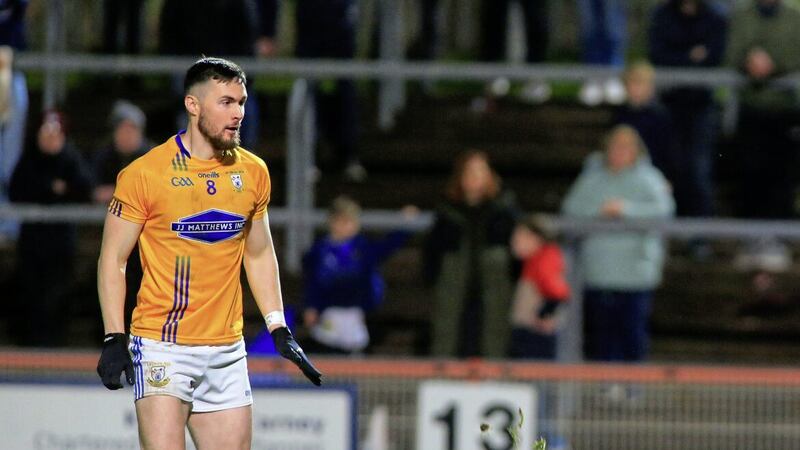KEVIN Madden’s heart sank when wife Maria came running. The Denmark-Finland match was on in the house but, out in the “man shed”, Donegal versus Dublin was on the television while the awful scenes were unfolding in Copenhagen.
The star of the Danish side, Christian Eriksen, had collapsed on the pitch, suffering a cardiac arrest just a few minutes before half-time of their Euro 2020 opener against Finland at Parken Stadium.
Distressing scenes were broadcast around the globe as medics battled to revive the 29-year-old.
Thankfully, those swift actions helped save his life, and Danish team doctor Morten Boesen yesterday confirmed the former Tottenham midfielder was to be fitted with a heart-starting device – an ICD, or implantable cardioverter defibrillator.
Madden watched with horror at the time, praying for Eriksen to survive.
Having tutored CPR and regularly run defibrillator training courses through his role as a community sports development officer with Lisburn and Castlereagh Council, the former Antrim star knew better than most how grave the situation was.
He was in Owenbeg seven years ago when Lavey’s Derry defender Kevin McCloy had to be revived after collapsing during a game against Magherafelt, and the same concerns immediately resurfacing.
“You’re just thinking ‘not again’,” says Madden.
“Everybody remembers the Fabrice Muamba incident and then with Kevin. Your heart automatically sinks because you know the severity of it, the importance of time intervention and ensuring that person gets good CPR and a defibrillator used.
“The quicker that happens, the greater chance of survival. For every minute your heart’s in cardiac arrest without any type of intervention, your chances of survival reduce by 10 per cent, so you can see how minutes, seconds even, are absolutely critical.”
And, for GAA clubs across the country, it is a timely reminder of the importance of ensuring defibrillators at grounds are in good working order, should they ever be required.
“That night with Kevin McCloy, it wasn’t all straightforward.
“A big ground like Owenbeg, there was more than one defibrillator on site, but there was an issue with one of them and it was the second or third one delivered the shock that brought Kevin back.
“Most communities are lucky if they have one defibrillator, and you have one opportunity, so it’s so important that people are trained in using them, that it is accessible and in good working order.
“There’s probably a varying degree of competence around the maintenance of defibrillators. They remain in standby mode so the battery shouldn’t go flat but, like everything else, the battery and the pads on a defibrillator have a shelf life.
“Generally the pads need replaced every three years and if they aren’t replaced the sticky adhesiveness begins to erode from the pad, and there is a danger they may not stick to the person when they’re required for use.
“Really defibrillators should be checked once a week to make sure they’re in working order and the person who is responsible for it needs to make sure it is visible and can be accessed very quickly.”
Madden originally attended an first aid training course run by the Ambulance Service after his own playing career was cut short by a serious heart condition that first came to light in 2000.
Surgery to replace a severely leaking aortic valve with a tissue valve allowed him to play on with club and county until 2007. But when it started to leak “pretty significantly”, a mechanical version was the only option.
“I didn’t play county again but took the head staggers against all medical advice and played with Portglenone on a couple of occasions before I eventually accepted the cards I was dealt and hung up the boots to focus on coaching.
“When I was initially called by the cardiologist in 2000, I didn’t go. I was born with a murmur and I just thought it had come on the radar again. When I did eventually go in for tests they found the heart was quite enlarged and I’d need surgery… it was a complete and utter shock.
“My fitness probably disguised that I had an underlying condition so, strangely, sometimes the fitter you are the more at risk you might be."








